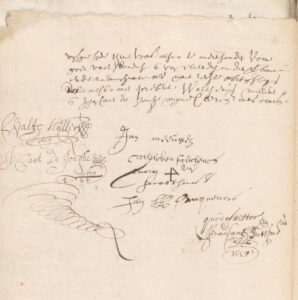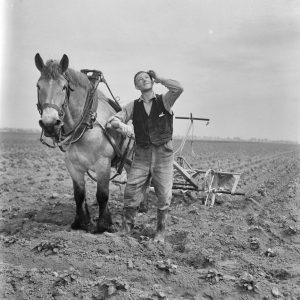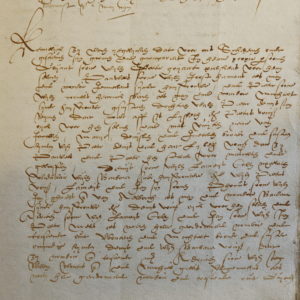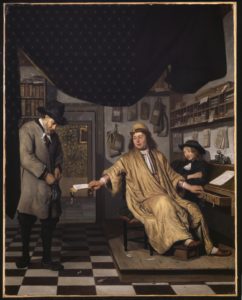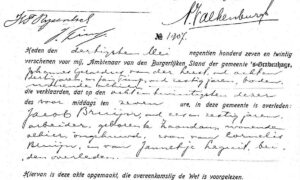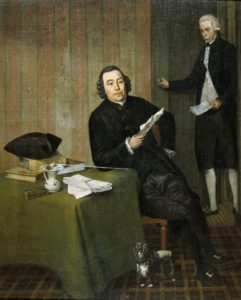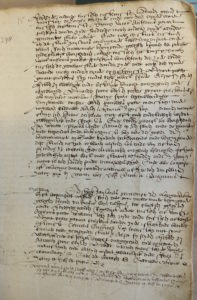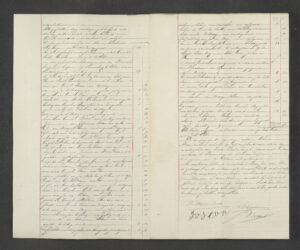A huwelijkscontract (literally: marriage contract) is a prenuptial agreement. Sometimes, they are called huwelijkse voorwaarden (conditions of marriage). Whether a couple had a prenuptial agreement depends on their social status. Richer families were more likely to draw up a marriage contract than poorer families. It is also more common to find a marriage contract if one of the spouses is widowed with children, in which case the marriage contract may make provisions for the children. Whether … [Read more...]
10 Ways to Find Notarial Records in the Netherlands
Notarial records are some of the richest sources of information about our ancestors' lives. They may contain wills, estate inventories, contracts, sales, and a range of other voluntary legal transactions. They are an important source for researching emigrants from the Netherlands. Many people went by a notary before leaving, for example to enter into a work contract or give a power of attorney to handle their affairs. Emigrants can still appear in notarial records after departure, if they owned … [Read more...]
Quick tip – Read between the lines
I am having fun with an 1827 inventory of the assets belonging to an ancestor. I love reading between the lines to see what the items tell us about my ancestor. Here are some things I noticed. He owned multiple plots of land, had different crops in the field, and had several types of grain stored. Agriculture was likely his main source of income. He owned three cows, one calf, no bulls. Three cows is not enough to live off, so they were probably for their personal use and for the manure … [Read more...]
Dutch term – Boedelscheiding
A boedelscheiding is an estate division. This often happened after someone died. An estate division record will include details about the estate and will list who got what. These records can typically be found in notarial records, or in voluntary court records before 1811 in regions where there were no notaries. If there was not much to divide, the estate may have been divided informally without there being an official record. … [Read more...]
Dutch term – Vruchtgebruik
Vruchtgebruik (literally: use of the fruits) is the Dutch term for usufruct, the right to use a property, usually for the remainder of one's life. You may encounter the term in notarial records, for example in wills that give someone the vruchtgebruik of a property that is then left to someone else after they die, or in a sale record where the vruchtgebruiker (person who has the right of vruchtgebruik) relinquishes their rights. You may also find the term in death duties files, which would … [Read more...]
Ask Yvette – How to find a Dutch will
One of our Twitter followers, Karen de Bruyne, asked on Twitter how to find the will of her great-grandfather-in-law Jacob Bruijn, who died in The Hague on 28 May 1927. Since there are several ways to go about it, I thought I would write a blog post about it. Most people in the Netherlands did not have wills, either because there was not much to inherit, or because they were happy with the default way their estate would be inherited. Since 1811, wills were recorded by notaries. Before … [Read more...]
Dutch term – Royement
A royement can have multiple meanings, all having to do with cancellation or ceasing to be valid. When referring to persons, it is a disbarment or revoking of membership. When referring to records, it means the record itself is cancelled, for example when a mortgage is paid. You may come across the term in contemporary summaries of notarial records. Royementen of mortgages were typically created and handed to the interested party, rather than also being copied into the notaries' minutes. The … [Read more...]
Quick tip – Wills in the third person
Some people are surprised that many Dutch wills are in the third person ("leaves HER house to HER brother and HER sister"). This is because the wills are drawn up by a notary or court clerk, and the "I" in the record is the notary. "Today appeared before me, notary so-and-so, Mrs. this-and-that who declared this to be HER last will." … [Read more...]
Dutch term – Transport
The Dutch word transport can simply mean transport, but in legal records it means the transfer of property. Deeds of sale are sometimes called transportakten [transport deeds] or are recorded in transportregisters [transport registers]. Transport deeds will mention the previous and new owners, any rights or encumbrances attached to the property (like tithes, right of way), and a description of its location. … [Read more...]
Quick tip – Check notaries in neighboring towns
If you are looking for notarial records, be sure to check in neighboring towns too. Unlike civil registrations or court records, there was no requirement to go to the notary in your own town. Sometimes, people lived in the countryside and the notary of a neighboring town was more convenient. Your ancestor could also appear in notarial records in another town if the seller or purchaser lived elsewhere and created the record there. When looking for notarial records of my ancestors Martinus … [Read more...]
